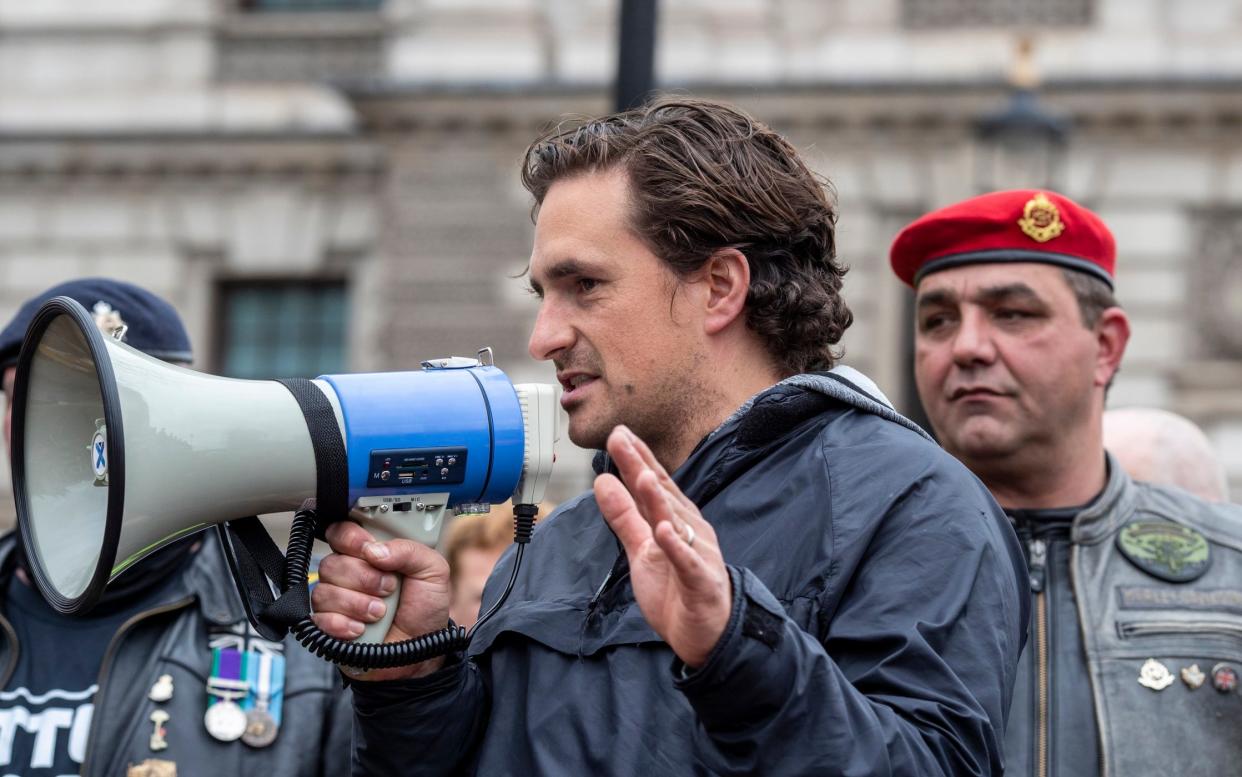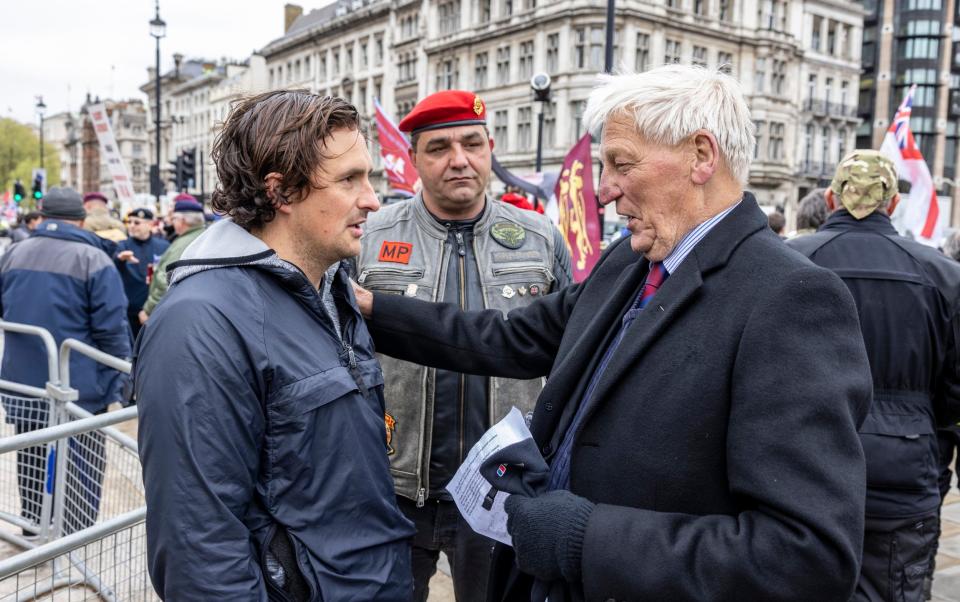Boris Johnson repeatedly lied over pledge to stop Troubles prosecutions, former defence minister claims

Boris Johnson repeatedly lied over a pledge to stop Troubles prosecutions, his former defence minister has told the Court of Appeal in a case brought by a dying Northern Ireland veteran.
Johnny Mercer, who was sacked as veterans’ minister, has turned star witness in a case that threatens to cause the prime minister and other senior ministers deep embarrassment over their treatment of former troops who served in Northern Ireland.
Lawyers for Dennis Hutchings, an 80-year-old veteran charged with attempted murder over the death of a man 48 years aho, have submitted to the Court of Appeal a 21-page witness statement from Mr Mercer, a Conservative MP.
Mr Hutchings has brought a legal claim against the Secretary of State for Northern Ireland, claiming veterans are being discriminated against over historic killings during the Troubles.
The case was thrown out in the High Court but lawyers have appealed that decision, using Mr Mercer’s testimony. They argue that Mr Johnson’s promises give soldiers a “legitimate expectation” to be treated fairly.
In his statement in support of Mr Hutchings, the former defence minister said the Government had made repeated promises to introduce new legislation to “end repeated and vexatious investigations into historical allegations against our servicemen and women – including in Northern Ireland”.
In the witness statement, Mr Mercer details at least seven occasions when Mr Johnson and his Government over the course of two years had committed to a law that would protect Northern Ireland veterans from prosecution.
Mr Mercer has told the Court of Appeal in the witness statement lodged last week that the failure to introduce legislation discriminated against troops who served in Northern Ireland - because he had succeeded in introducing such a law for troops who had served overseas.
He said Brandon Lewis, the Northern Ireland secretary, had made a commitment to veterans which “has not been delivered”, and that the effect had been” to discriminate against NI Veterans by failing to provide them with the same protections as those British military service personnel who served overseas”.

When Mr Mercer tried to restate the commitment in April last year, according to his witness statement, he was made aware that the Northern Ireland Office had complained about his behaviour to Number 10.
Then in September last year, special advisors in the Ministry of Defence texted him “to not repeat promises” made on the commitment to troops in parliament. When Mr Mercer ignored that, according to his witness statement, Mr Lewis “then appeared in the Chamber”.
Mr Mercer said in his statement: “Sensing a retreat from his commitments, I ignored him. We had a heated discussion afterwards by the Speaker’s Chair where he intimated to me that No.10 had asked him to stop working on the policy. I followed this up with a Special Adviser in No.10 who intimated to me that it was not No.10 but rather the Northern Ireland Secretary and the Northern Ireland Office who were stalling on this issue. I concluded both were misleading me.”
In April this year, Mr Mercer, frustrated at the lack of progress, told the prime minister of his intention to resign. He was subsequently sacked before he could formally do so.
Mr Hutchings, who suffers from kidney failure that requires dialysis at least twice a week, has applied to court in Belfast to have his trial brought forward. He has learnt he also suffers from heart failure and could suffer a heart attack and die at any moment and wants to clear his name in court.
Mr Hutchings said Mr Mercer had been the only minister who had stood up for veterans and praised him for taking up his cause against the Government.
According to the legal claim, brought by Mr Hutchings’ lawyer Matthew Jury, of McCue and Partners, British troops are discriminated against because they are 54 times more likely to be prosecuted than terrorist over deaths during the Troubles.

